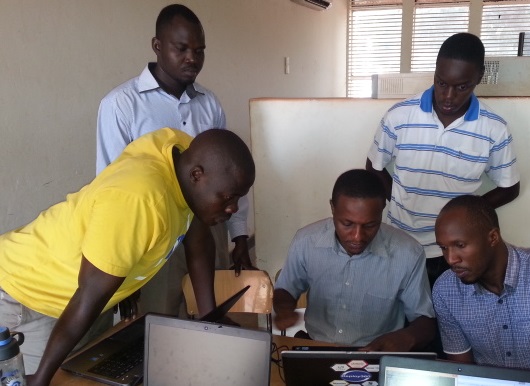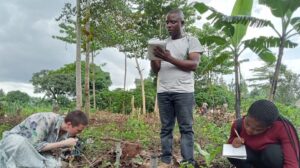Miles to go for Scholarly Commons to become a global academic norm
This post is the first of a two-part series. In this first part, INASP Associate Ravi Murugesan describes his participation at a workshop organized by the Scholarly Commons Working Group.
Part 1 of 2
There are two ways to write a report of a major event: right after attending it – while the memory of what transpired is still fresh – or sometime later, after seeing the world through a new lens inspired by that event and considering the event again in the light of what one sees. I’ve opted for the second approach to reflect on the Scholarly Commons Workshop in San Diego that I attended in September of last year.
The Scholarly Commons Working Group (SCWG), which organized this workshop, is an initiative of the nonprofit organization FORCE11.
According to the live draft of the Scholarly Commons principles:
“…the Scholarly Commons defines a system of scholarship and research production and dissemination that:
Promotes the best research and scholarship possible by
- Making the process and products of research and scholarship maximally transparent
- Maximizing participation of the world’s scholars and researchers
- Capitalizing on the most productive technologies
It promotes the most rapid and wide dissemination of scholarship and research possible to all who need or want them.”
Perhaps one way to think of Scholarly Commons is ‘open access++’!
‘Open’ is a big theme at INASP. We have a longstanding commitment to open-access publishing in developing countries through our Journals Online project. Through AuthorAID online courses – regularly offered as MOOCs – we educate Southern researchers about contemporary issues in publishing including open access and open data. For these reasons – and the clear intention to involve the ‘world’s researchers’ in the building of the scholarly commons – I keenly looked forward to the Scholarly Commons workshop.
I’m not going to write a workshop report as such because at least two people have done this already: Danny Kingsley and April Hathcock. Instead I’m going to throw a light on the ‘Southern’ aspect of the workshop and in the next two posts that are part of this series I’ll go over a couple of events after the workshop that led me to wonder what it would take to implement the lofty principles of the commons in the Global South, where INASP works.
On the first day of the workshop, the participants were given an opportunity to suggest and advertise ‘unworkshop’ sessions for the second day. I proposed a session titled ‘Making the Scholarly Commons relevant in the Global South’. I thought at least a few people might be interested in discussing this, but I was stunned when nearly half of the workshop audience showed up! There were even two celebrities from the research communication world: Cameron Neylon and Ivan Oransky.
#futurecommons the global south unworkshop. Well done @RaviMurugesan pic.twitter.com/a4w5gqhbKq
— Daniel O’Donnell (@DanielPaulOD) September 20, 2016
We spent a few hours having a candid discussion and we have a detailed report, which is part of the main proceedings. April Hathcock touches upon this session in her blog post, but I wouldn’t quite agree with her statement that this session ‘was relegated, literally and physically, to the margins, ghettoized from the main discourse’. Going by the large number of people who chose to attend this session and how everyone was actively involved – even those who didn’t have much experience working in the South – I would say this was one of the main sessions of the workshop even though it was spontaneously organized. The message was clear: Southern issues should be prioritized in the Scholarly Commons agenda.
Throughout the workshop, not just during the ‘unworkshop’, I kept wondering how all this talk of Scholarly Commons would be received in academic environments in developing countries. Or would there even be an audience to receive it? ■
Click the link to read Part 2 – Miles to go for Scholarly Commons to become a global academic norm

 Previous Post
Previous Post



This is very interesting post, I will be waiting for the next two parts